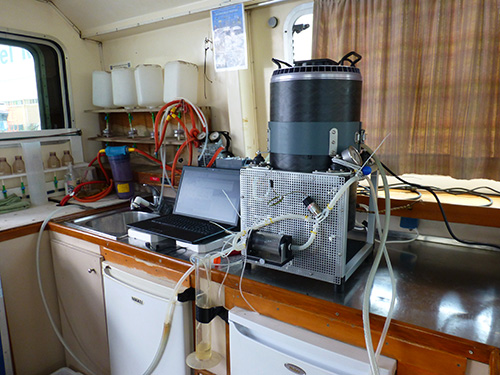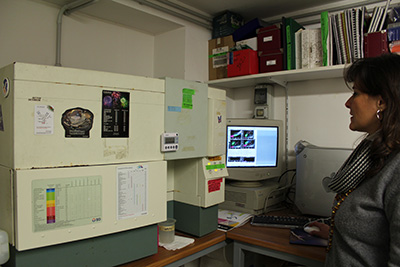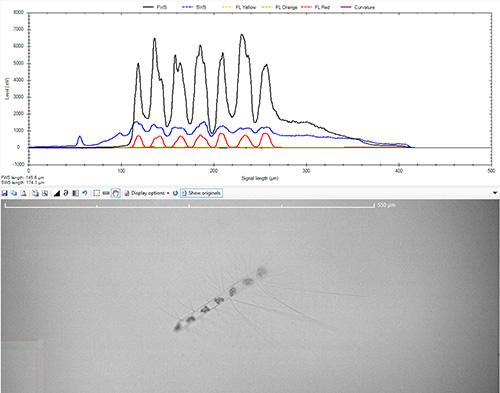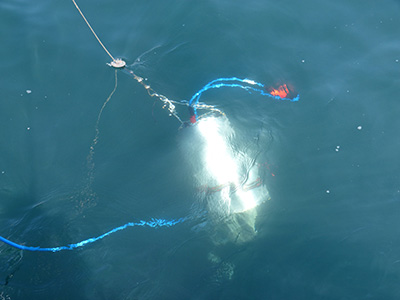Responsible: Raffaella Casotti
Activities
The laboratory of Microbial Ecology carries on research on marine microorganisms (mainly diatoms and autotrophic/heterotrophic picoplankton) studying their diversity, activity and metabolic functions as well as their interactions with the environment, both physical-chemical and biological. The activities are held mainly by direct methods, that is, independent from cultivation, but monospecific cultures are also used to test specific hypotheses or further characterize microorganisms. The fields of activity cover the biological oceanography, ecophysiology and marine ecology in general.
The laboratory also implements the technical and instrumental approaches for the study of microorganisms, mainly as regards the use of flow cytometry for the monitoring of marine plankton and for the development of early warning systems for biological environmental risk.
Experimental systems
- Thermostated cabinets for growing microalgae and bacteria under controlled light and temperature conditions.
- Tanks for experiments on board ships or outdoors for incubations and manipulations of natural plankton communities.
Analysis
- Counts and measurements of optical parameters (scatter and fluorescence) on cells and unicellular organisms by flow cytometry and epifluorescence microscopy.
- Estimates of growth rates and grazing of picoplankton.
- In situ hybridization with oligonucleotide probes for the characterization of bacterial communities.
- Estimates of DNA content of algae and cell lines by flow cytometry (including dynamics of the cell cycle).
- DNA and RNA extraction for metagenomics and metatranscriptomics.
- Analysis of cellular concentrations of picophytoplankton with scanning flow cytometers at high frequency in both laboratory and on board boats.
- Analysis of concentrations and cellular properties of marine bacteria with prototype automatic coloring module.
Instrumentation
- Conventional flow cytometry.
- Scanning flow cytometer with automated sampling module.
- Laminar flow hood.
- Thermostated cabinets for algal and bacterial cultures.
- Epifluorescence microscope with camera.
- Basic instrumentation for laboratory (centrifuges, thermostated baths, pHmeter, filtration rigs, sonicators, refrigerators and freezers).















